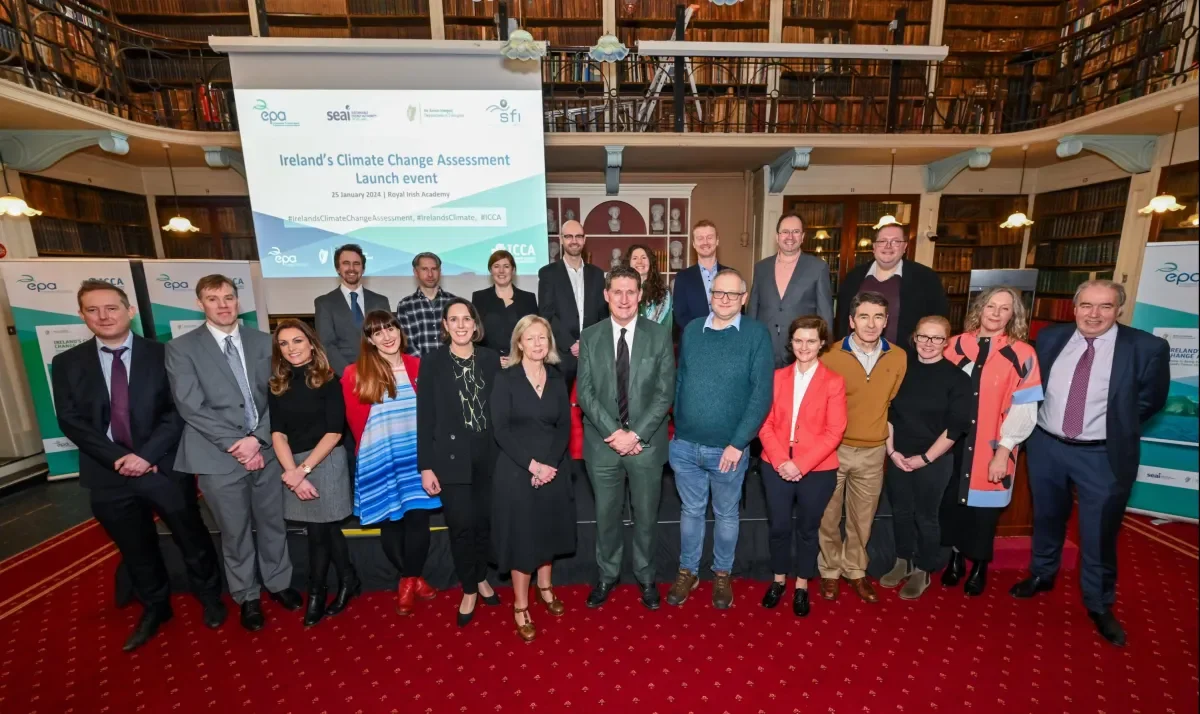

Photo: EPA
DCU Researchers play key role in Ireland’s first Climate Change Assessment
Dr Diarmuid Torney is a coordinating author of the report’s fourth volume ‘Realising the benefit of transition and transformation’ which assesses the opportunities adapting to climate presents, and how to ensure a fair transition.
In addition, Dr Tadgh O’Mahony worked on the project as a research fellow in DCU and an author of volume four. Dr Jean Boucher, another research fellow on the project based at DCU, played a central role in conceiving volume four. Current Director of the DCU Centre Climate and Society Dr David Robbins was a contributing author, penning the volume’s section on climate change and the media.
Dr Diarmuid Torney said
“The first of its kind in an Irish context, the Report assesses and synthesises the state of our knowledge on the climate crisis and the actions we can take collectively to address it. It was a privilege to work with leading researchers from across Ireland to bring it to fruition.
In the fourth volume, we highlight the imperative for transformative change, which can unlock rapid and fair climate action with a myriad of opportunities and benefits for people and nature.”
The other three volumes of the report address the current level of knowledge of climate change in Ireland, the necessary steps to reach climate neutrality by 2050, and preparation for the country's future climate. The report also features authors from Trinity College Dublin, Maynooth University, University of Galway and University College Cork.
Key findings
-
Human activity has resulted in widespread and rapid changes in climate which are already impacting us all today.
-
The future climate is in our collective hands. Halting warming globally, and in Ireland, requires rapidly reaching at least net-zero carbon dioxide emissions and substantially cutting other greenhouse gas emissions. Every action matters: with every additional increment of warming, impacts for Ireland will increase substantially.
-
Having peaked in 2001, Ireland’s greenhouse gas emissions have reduced in all sectors except agriculture. However, Ireland currently emits more greenhouse gases per person than the EU average. A legal basis for deep, rapid and sustained national emissions cuts now exists, although current policy and action remain insufficient to meet these aims. The pathway forward is clearer for energy, transport and the built environment than for agriculture and land use. For all sectors there are many challenges to overcome.
-
Ireland needs to be resilient to ongoing and future climate change impacts. This requires increased focus upon and investment in adaptation that can protect us from future climatic impacts. Current implementation of adaptation is too slow and fragmented. Doing better requires financing, working with people and nature, monitoring and evaluating outcomes, and increasing public and private sector involvement.
-
Effective and just transformative actions will have mitigation and adaptation benefits and bring broader benefits for health, wellbeing, nature and sustainable economic development. The state has a central role to play in enabling the necessary transformations, supported through action across society. Decisions taken this decade will reverberate for generations to come.
